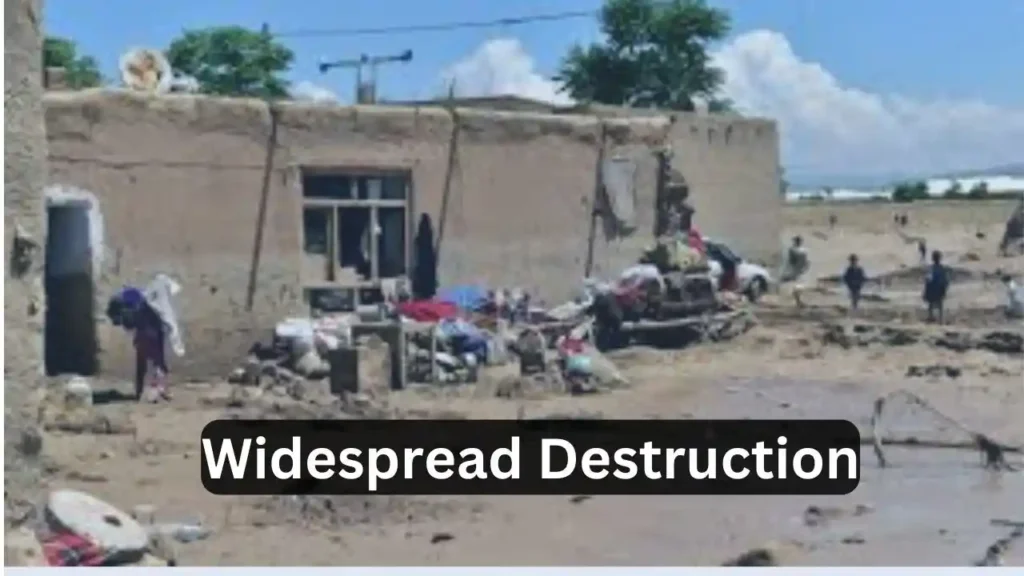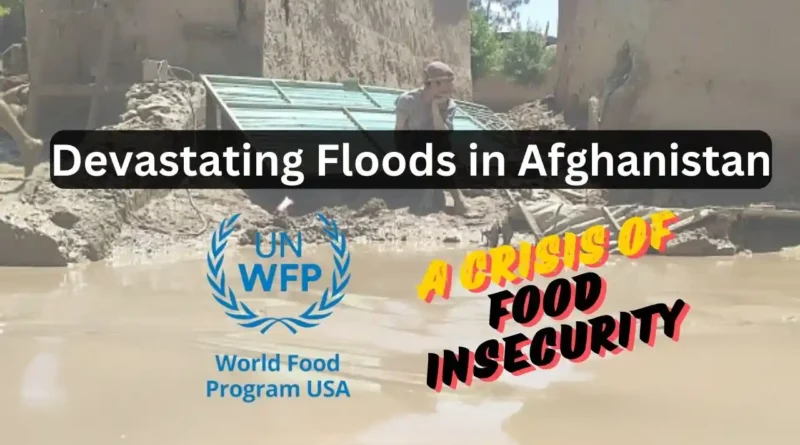Devastating Floods in Afghanistan: A Crisis of Food Insecurity, 2024
Floods in Afghanistan: The World Food Organization has reported severe food shortages in the flood-affected areas of Baghlan and Badakhshan, creating a famine-like situation. The United Nations Office for the Coordination of Humanitarian Affairs (OCHA) said that search and rescue operations for missing people are ongoing, with 14 UN teams assessing the damage and needs in the affected regions.
Widespread Destruction
According to Timothy Anderson, the head of the World Food Program in Afghanistan, there has been widespread destruction and loss of life in these areas, with many injured. Approximately 540 people have been killed or injured, 3000 houses have been completely or partially damaged, 10000 acres of gardens have been destroyed, and 2000 cattle have perished in the floods.

Survivors Left with Nothing: Floods in Afghanistan
Anderson emphasized that the survivors have been left with nothing, no homes and no food. The World Food Organization is providing emergency food aid and plans to distribute blankets, cash, and enough food to meet basic needs for a month.
Immense Hunger in Baghlan and Badakhshan
The World Food Organization identified Baghlan and Badakhshan as the two most affected areas, where immense hunger prevails due to the destruction of seasonal crops and limited food availability. These populations will need food aid to survive the summer.
Malnutrition Crisis
A UNICEF report states that 3.2 million Afghan children under the age of 5 are suffering from malnutrition, and nearly half of all deaths among children under 5 are due to malnutrition. Malnutrition also increases the risk of dying from common infections.
Read also: Modi Called Muslims Infiltrators, Now Says No Hindu-Muslim Difference: Owaisi, 2024 Election
Funding Shortages
Anderson expressed concern over severe funding shortages faced by the World Food Organization. They needed a billion dollars for relief operations this year, but have only received 30 per cent of that amount, leading to drastic cuts in food aid. Currently, the organization is providing services to 2 million people in Afghanistan, down from 120 million earlier.
Health Services Disrupted
The World Health Organization’s spokesperson, Christian Lindemeier, said that many health centres have been damaged by the floods, making it difficult to provide essential treatment. The WHO has delivered seven metric tons of essential medicines and medical supplies and has deployed a team of experts and aid workers, along with 17 mobile health teams, to assist the flood-affected people.




